Working with LLM
Challenges and solutions
Christophe Cerisara
CNRS, LORIA, Synalp team
LLM: post-Machine Learning area?
- Limitations of ML approaches:
- Only understand vector inputs
- Unable to learn from 2 examples
- LLMs solve these limitations:
- Understand English
- Thanks to “reasoning”, can learn from 2 examples
Ex: last letter concatenation
(from Denny Zhou, Google)
| Elon Musk | nk |
| Bill Gates | ls |
- Obvious for humans with 2 examples
- ML approach:
- enc-dec trained on tons of labeled data
- Qwen2.5-7b:
Perform last letter concatenation, as shown in these two examples. Words: Elon Musk Answer: nk Words: Bill Gates Answer: ls Words: Barack Obama Answer:
[…] So, the concatenation would be ka
- Requires more advanced prompting strategies with older models: CoT, analogical prompting…
Part 1: inside the LLM…
- GPU
- Data
- Transformer
- No bottleneck of information
2017: the transformer

- Reason over layer steps
- Semi-Turing machine
- Learns to learn (2nd order-GD, TD)
- Reason over time steps
Scaling laws
- The more data you train on
- the more the LLM knows about
- the better the LLM generalizes
- scaling law = power law = \(y(x) = ax^{-\gamma} +b\)
- \(y(x) =\) test loss
- \(\gamma\) = slope
Baidu paper 2017
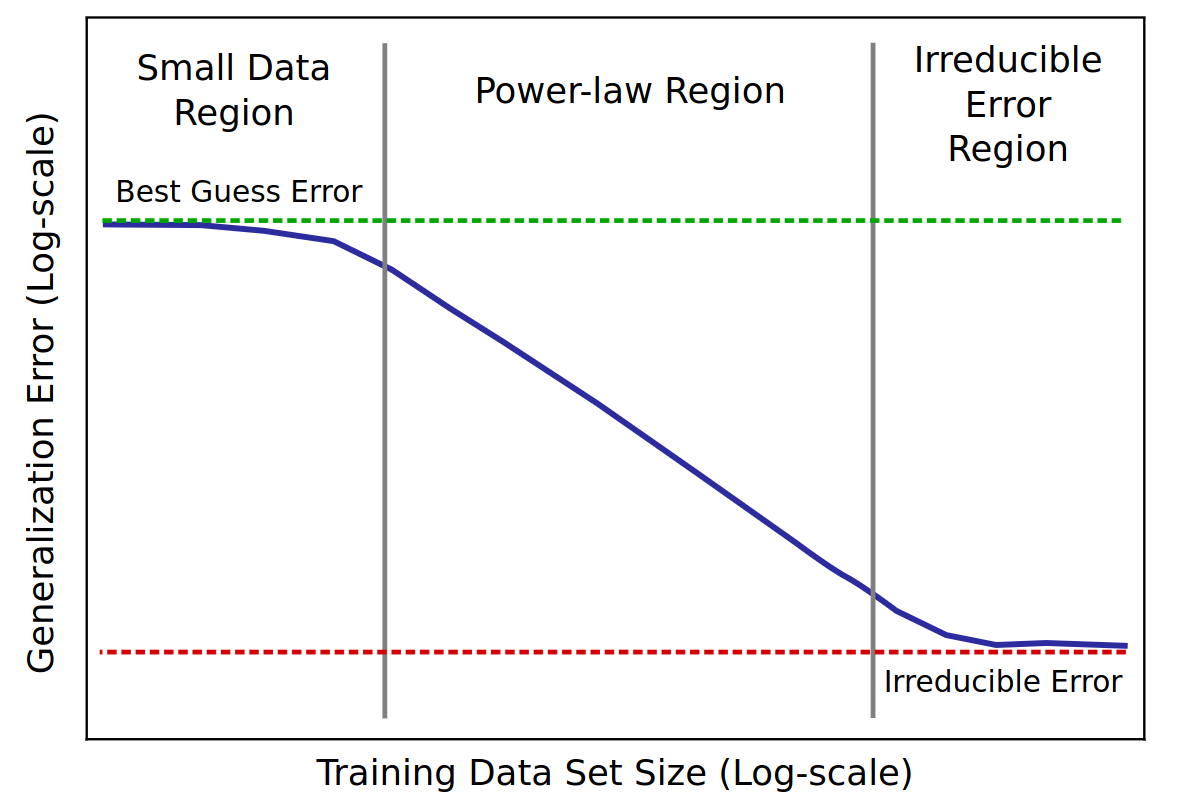
Scaling laws for Neural LM 2020

Open-AI 2020
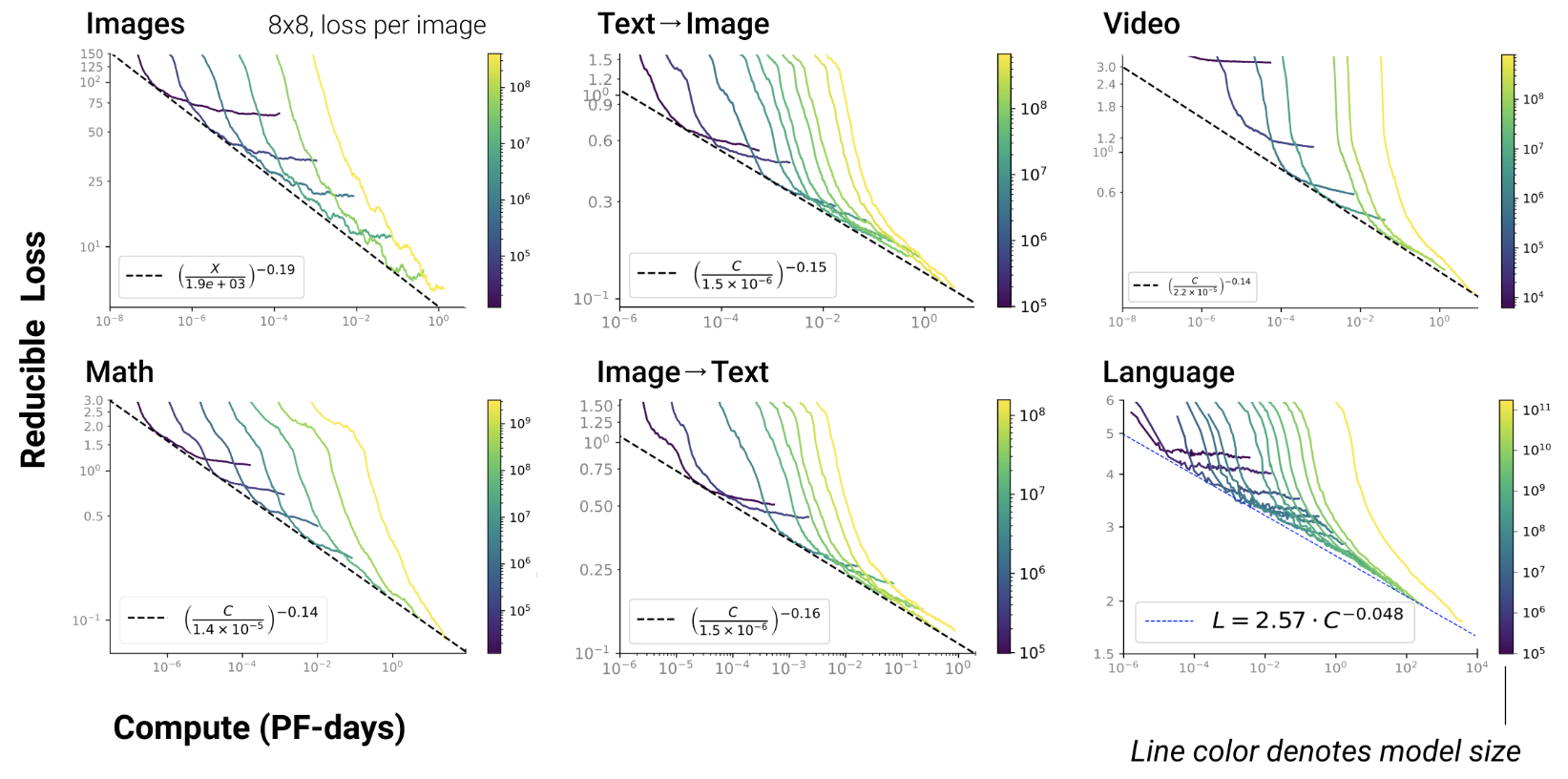
- RL, protein, chemistry…
Chinchilla paper 2022
- GPT3 2020: inc. model capacity
- Chinchilla 2022: inc. data

Google 2022: paper1, paper2 Flops, Upstream (pretraining), Downstream (acc on 17 tasks), Params
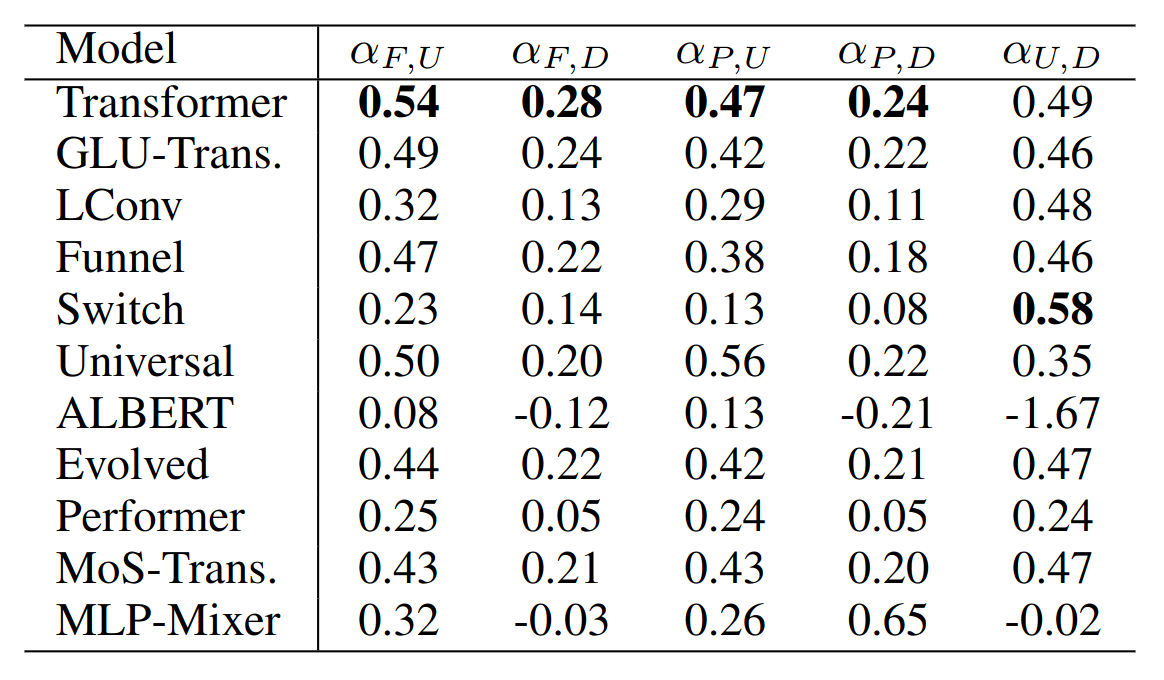
Emerging capabilities
- Scaling laws exist in Machine Learning for a long time (cf. Paper on learning curves)
- But it’s the first time they result from emerging capabilities!
Anthropic paper 2022
- shows that the scaling law results from combination of emerging capabilities

Jason Wei has exhibited 137 emerging capabilities:

Emergence of structures
- Training \(\rightarrow\) multiple phase transitions
- When representations becomes structured, then generalization occurs:
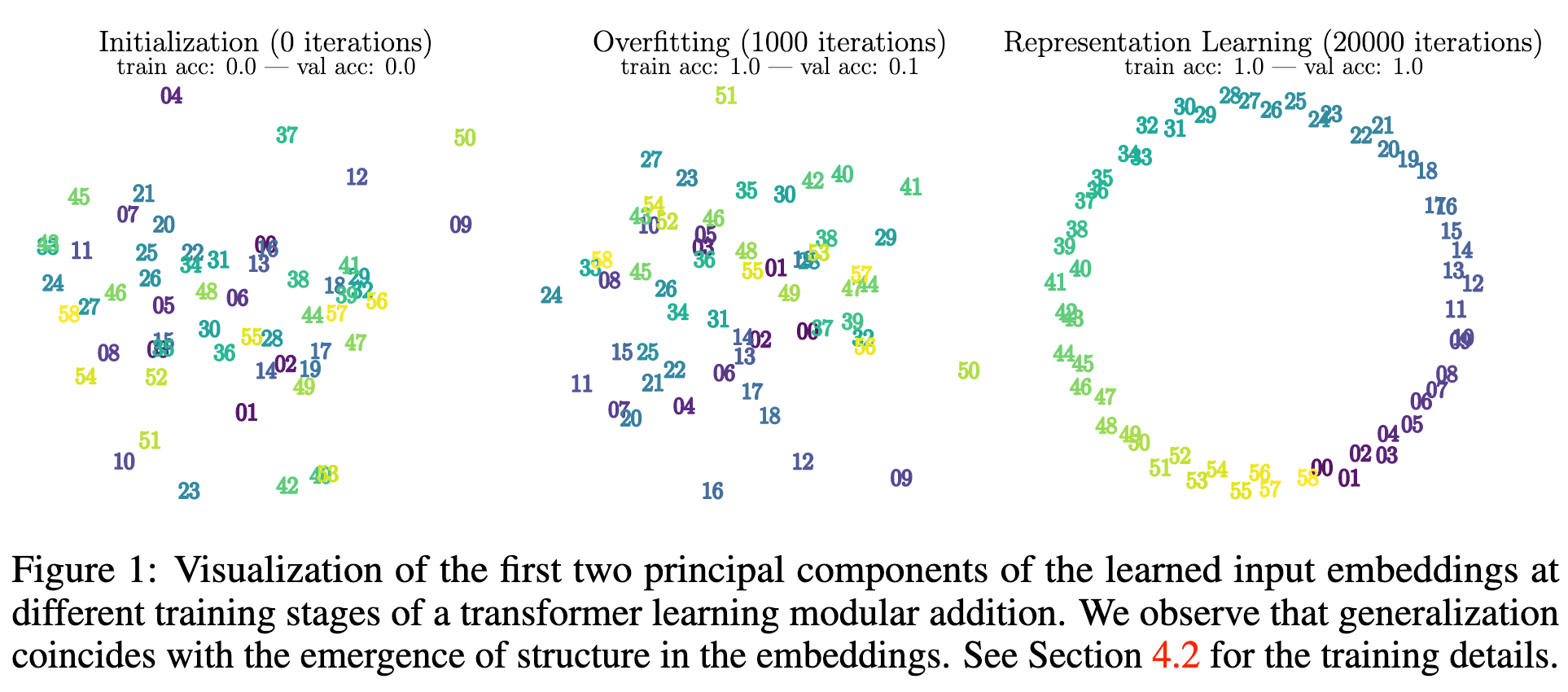
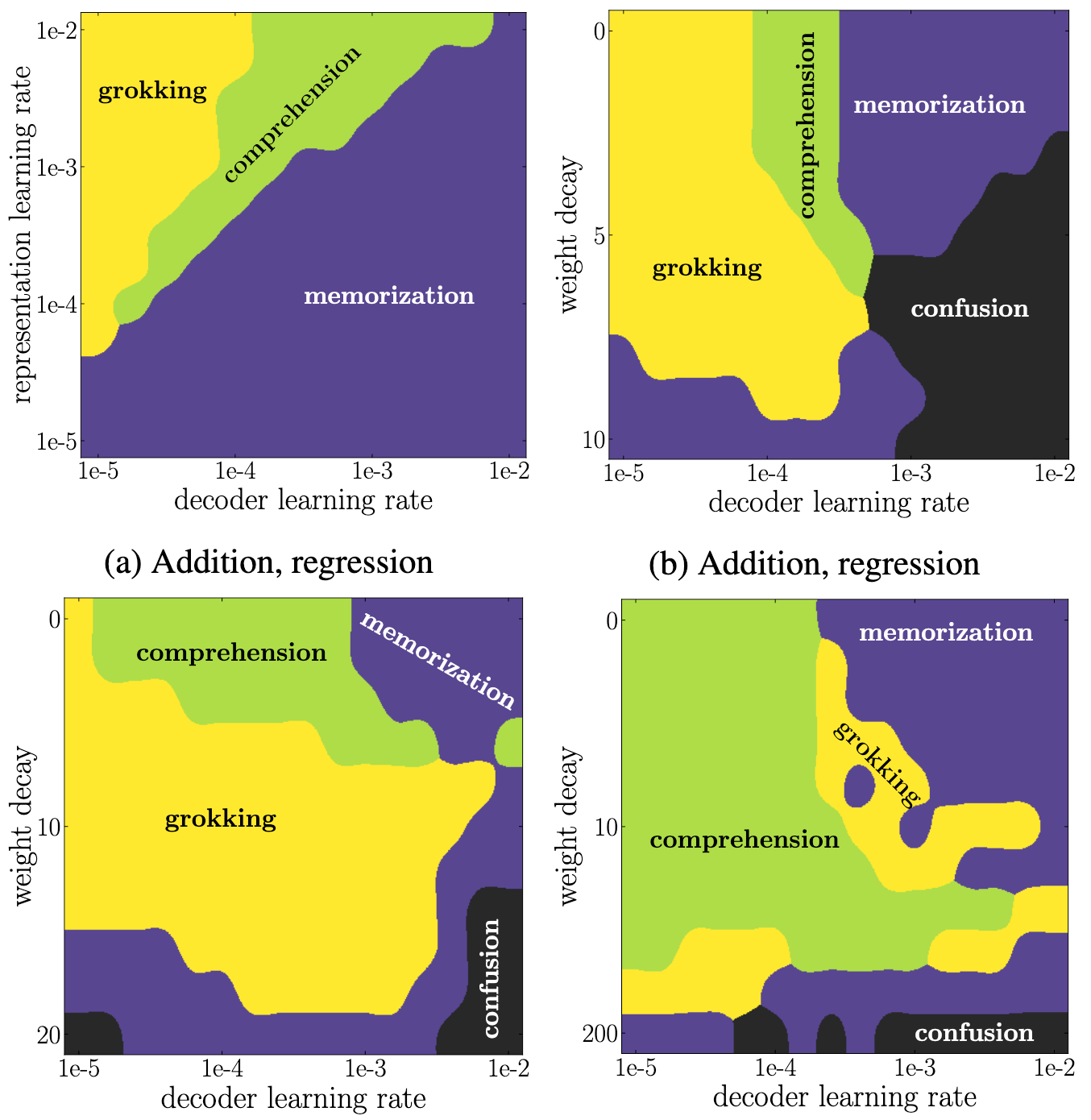
- Why do we observe phases during training?
- NYU paper 2023
- Because of competing sub-networks: dense for memorization and another sparse for generalization

Part 2: outside the LLM
Life cycle of LLM

Open-source community
- Extremely important for LLMs:
- Main contributors in: pretraining, finetuning, model merging, dissemination, efficiency, evaluation
- “We have no moat” (Google, 2023)
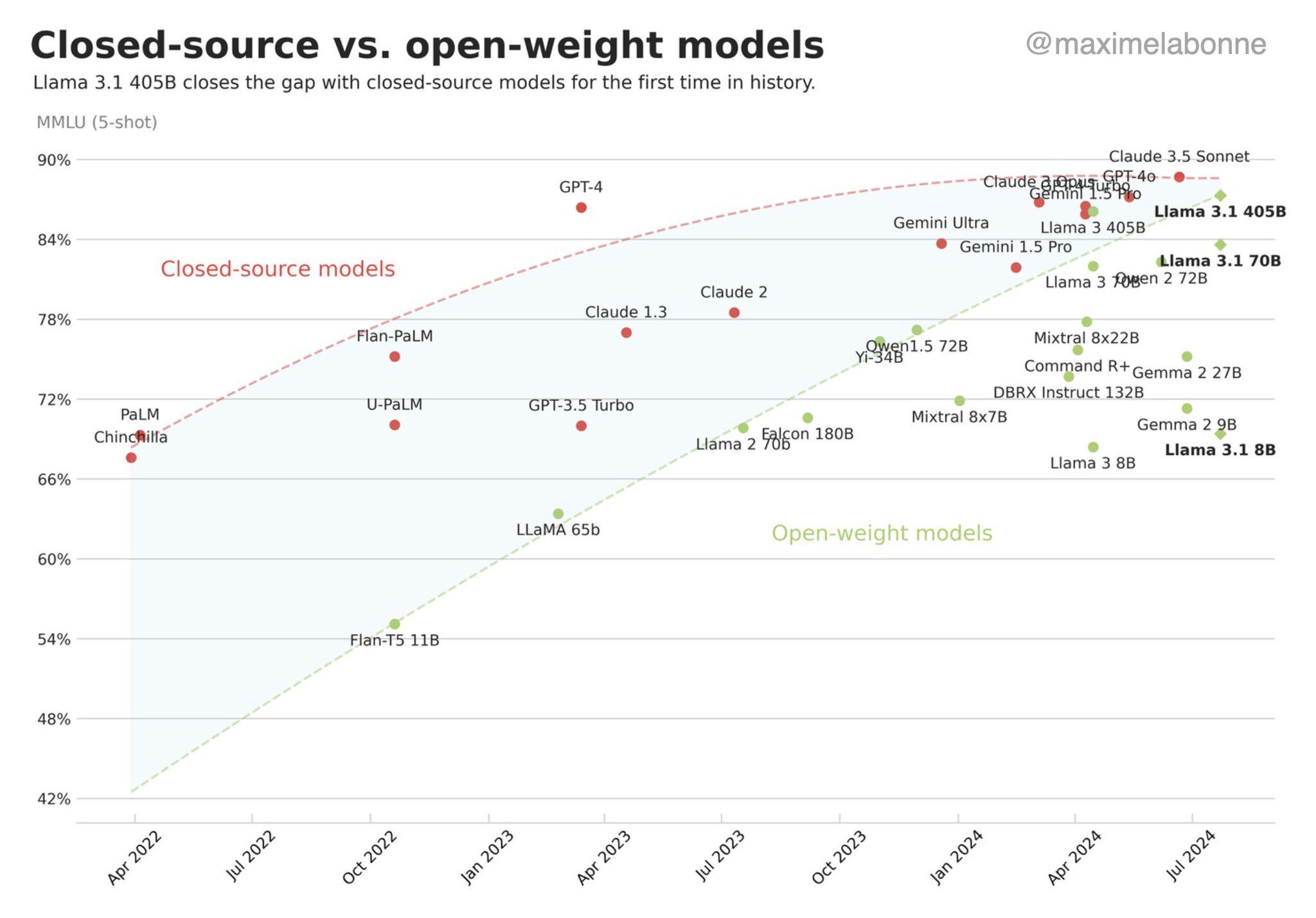
Remaining challenges
- LLM energy cost
- Training vs. using locally vs. LLMaaS
- LLM pruning, compression, distillation…
- Integrating LLMs into systems
- RAG, LLM agents, tools using, function calling…
Join the discussion: cerisara@loria.fr, @cerisara@mastodon.online